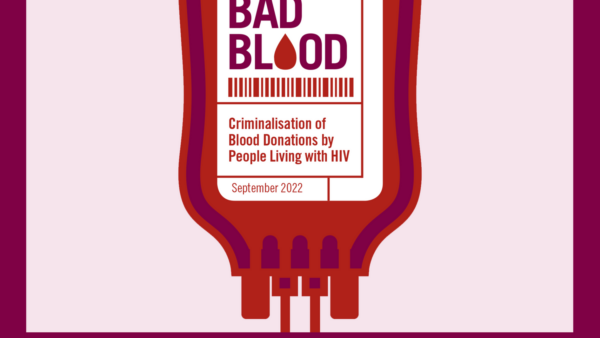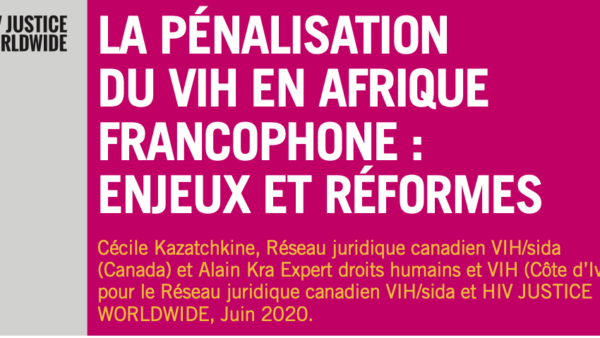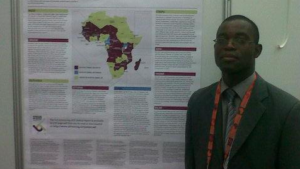Overview
Guinea has an HIV-specific law, however, to our knowledge, there have been no reported cases of criminalisation to date.
The original HIV law, Ordinance No. 056/2009/PRG/SGG, contained provisions penalising the ‘deliberate’ transmission of HIV. It did so through Article 34, which criminalised ‘deliberate’ transmission through ‘sexual or blood transmission’. It was not clear whether this includes transmission through a blood donation, or whether this is limited to direct blood contact (see our report, Bad Blood, for a global analysis of the criminalisation of blood donations). Additionally, Article 35 and Article 36 further criminalise intentional transmission.
In 2009, an amendment was introduced aiming to limit the use of the criminal law, and specified, in Article 37, a number of circumstances limiting criminal liability. These are: cases of mother-to-child transmission, acts carrying negligible risk of transmission, cases where the person living with HIV is not aware of their status, cases where the person living with HIV has disclosed to their partner and cases where the partner is aware of the status of the person living with HIV, cases where the person living with HIV has taken steps to protect their partner such as using a condom.
In 2024, another amendment was made to this law, with a report by the Health, Education, Social Affairs and Culture Committee noting that the HIV law is now out of step with national and international protections. The revised law, Law L/2024/001/CNT of 12 January 2024, made revisions aimed at improving the national HIV response including stronger protections for women and girls and vulnerable groups, the elimination of compulsory HIV testing prior to marriage, and the elimination of the obligation to disclose HIV status to a spouse. It also imposed a range of penalties for discrimination against people living with HIV, including forced testing and treatment, refusal of medical assistance, and abandonment by family members. However, the amendment also made changes to HIV criminalisation, significantly enhancing the fines available, as well as reclassifying intentional HIV transmission from a misdemeanour to a felony, punishable with 15 to 20 years’ imprisonment. Article 24 of the law also permits medical providers to disclose the HIV status of people living with HIV to their partners where they fail to do so within 21 days.
Laws
Law L/2024/001/CNT of 12 January 2024
Article 51. Punishment of perpetrators of deliberate HIV transmission
Any deliberate transmission of HIV, by sexual or blood means, is considered a crime.
A fine of 20,000,000 to 30,000,000 Guinean francs and 10 to 15 years’ imprisonment shall be imposed on any person who, knowing his or her positive serological status and the modes of HIV transmission, engages in unprotected sexual intercourse with the intention of transmitting the disease to another person.
Any HIV-infected person who knows his or her serological status and who, through the use of force or coercion, has unprotected sexual relations with a vulnerable or non-vulnerable person with the proven aim of infecting him or her is liable to a fine of between 30,000,000 and 50,000,000 Guinean francs and 15 to 20 years’ imprisonment.
Is punishable by a fine of 1,000,000 to 5,000,000 Guinean francs and imprisonment of from 1 month to 1 year, anyone who, through carelessness, inattention or thoughtlessness, causes the infection of others with HIV.
Article 52. Special cases of voluntary transmission of HIV
No one may be prosecuted and tried under the terms of this Act for transmission of HIV or exposure to HIV, when said transmission or exposure occurs in one of the following cases:
1. transmission of HIV from mother to child before birth, during childbirth or while breastfeeding;
2. a person living with HIV/AIDS who does not know his or her positive serostatus at the time of the procedure;
3. a person living with HIV/AIDS who maintains sexual relations using a condom.
Acknowledgements
Report presenting the results of a survey on HIV criminalization in African countries where French is spoken, conducted from May to September 2017.
Authors: Stéphanie Claivaz-Loranger & Cécile Kazatchkine for the Canadian HIV Legal Network and HIV JUSTICE WORLDWIDE
HIV Justice Network's Positive Destinations
Visit the Guinea page on Positive Destinations for information on regulations that restrict entry, stay, and residency based on HIV-positive status, as well as access to HIV treatment for non-nationals.



